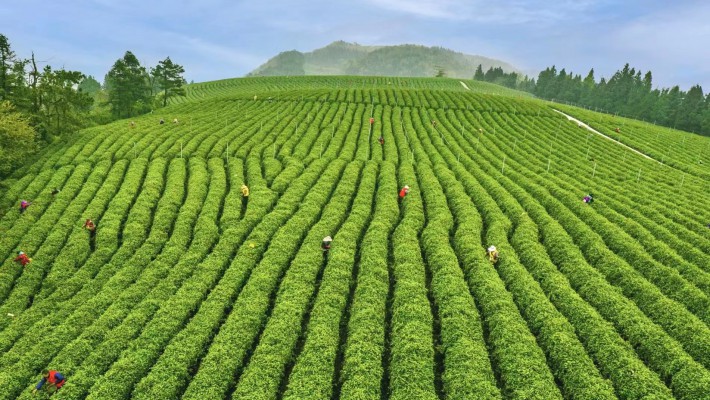Tea Culture
Origins and Evolvements of Tea Culture
Organic Tea and the Future of Development
With the increasing focus on health, environmental consciousness, and sustainable development, organic tea, as a tea choice that emphasizes quality and environmental impact, is rapidly moving towards the future of development. This article will explore the relationship between organic tea and future development trends, as well as the potential of organic tea in meeting consumer demands, technological innovation, and sustainable agriculture.
Firstly, organic tea has tremendous potential in meeting consumer demands. As more and more people begin to prioritize health and environmental concerns, there is a growing demand for natural and pollution-free products. Organic tea, as a sustainable and healthy choice, aligns with consumers' pursuit of high-quality tea without chemical residues. In the future, with the increasing awareness of health and the environment, the organic tea market will further expand to meet the needs of a wider range of consumers.
Secondly, technological innovation will drive the development of organic tea. With advancements in technology, agricultural practices are constantly being innovated and improved. The cultivation and production processes of organic tea can benefit from technological advancements, leading to increased production efficiency and tea quality. For example, the use of drones for tea plantation inspection and fertilization can enhance the precision and efficiency of crop management. Furthermore, technology can facilitate the integration of organic agriculture with digitalization, enabling the monitoring of crop growth, water resource management, pest control, and more. Technological innovation will provide more opportunities and challenges for organic tea production, propelling its development into new stages.
Thirdly, organic tea plays an increasingly important role in sustainable agriculture. With the growing global demand for sustainable development, organic tea, as one of the representatives of sustainable agriculture, is garnering attention and support. The cultivation process of organic tea emphasizes environmental protection, soil health, and ecological balance, setting an example for sustainable agriculture. In the future, organic tea will continue to play a significant role in promoting agriculture towards a more environmentally friendly and sustainable direction.
Moreover, the integration of organic tea with culture and tourism will become another development trend in the future. Organic tea gardens are often located in beautiful scenic areas, exuding a rich cultural and natural ambiance. These organic tea gardens offer opportunities for intimate encounters with nature, the appreciation of traditional tea culture, and the enjoyment of rural tourism. As the demand for traditional culture and tourism experiences increases, organic tea gardens will become popular tourist destinations, facilitating the dissemination and development of tea culture.
In conclusion, organic tea has vast prospects for future development. It can meet consumer demands for health, environmental consciousness, and high-quality tea. Technological innovation will drive the production and quality improvement of organic tea. Organic tea will continue to play a crucial role in sustainable agriculture, and its integration with culture and tourism will bring new development opportunities. Let us look forward to organic tea continuously providing us with delicious and healthy options while making significant contributions to sustainable development.

